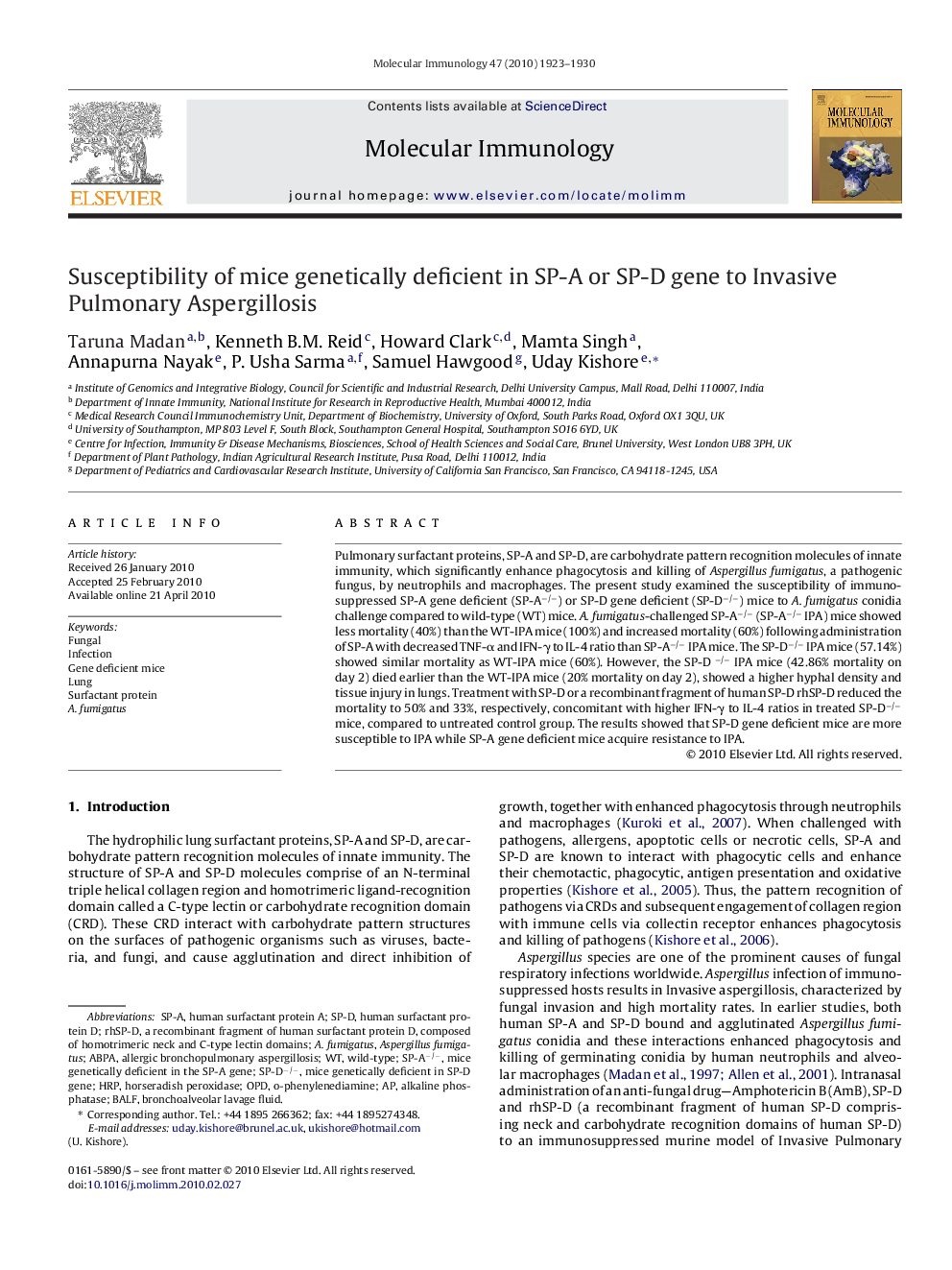| Article ID | Journal | Published Year | Pages | File Type |
|---|---|---|---|---|
| 5917931 | Molecular Immunology | 2010 | 8 Pages |
Abstract
Pulmonary surfactant proteins, SP-A and SP-D, are carbohydrate pattern recognition molecules of innate immunity, which significantly enhance phagocytosis and killing of Aspergillus fumigatus, a pathogenic fungus, by neutrophils and macrophages. The present study examined the susceptibility of immunosuppressed SP-A gene deficient (SP-Aâ/â) or SP-D gene deficient (SP-Dâ/â) mice to A. fumigatus conidia challenge compared to wild-type (WT) mice. A. fumigatus-challenged SP-Aâ/â (SP-Aâ/â IPA) mice showed less mortality (40%) than the WT-IPA mice (100%) and increased mortality (60%) following administration of SP-A with decreased TNF-α and IFN-γ to IL-4 ratio than SP-Aâ/â IPA mice. The SP-Dâ/â IPA mice (57.14%) showed similar mortality as WT-IPA mice (60%). However, the SP-D â/â IPA mice (42.86% mortality on day 2) died earlier than the WT-IPA mice (20% mortality on day 2), showed a higher hyphal density and tissue injury in lungs. Treatment with SP-D or a recombinant fragment of human SP-D rhSP-D reduced the mortality to 50% and 33%, respectively, concomitant with higher IFN-γ to IL-4 ratios in treated SP-Dâ/â mice, compared to untreated control group. The results showed that SP-D gene deficient mice are more susceptible to IPA while SP-A gene deficient mice acquire resistance to IPA.
Keywords
Related Topics
Life Sciences
Biochemistry, Genetics and Molecular Biology
Molecular Biology
Authors
Taruna Madan, Kenneth B.M. Reid, Howard Clark, Mamta Singh, Annapurna Nayak, P. Usha Sarma, Samuel Hawgood, Uday Kishore,
